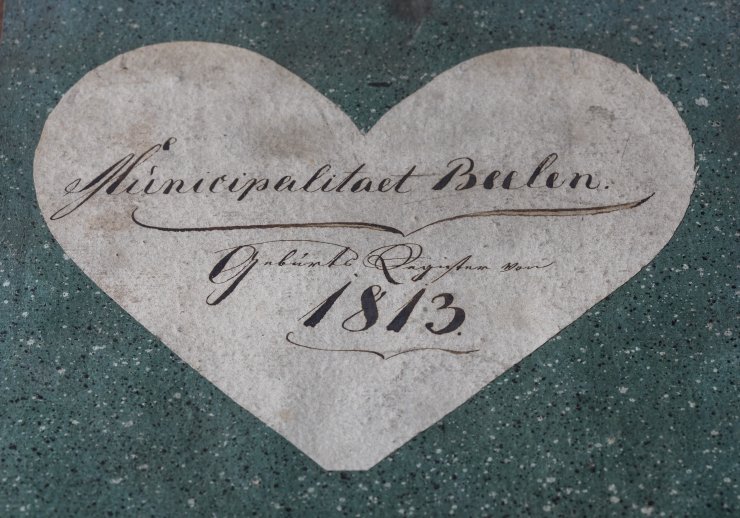Church registers
The churches started to monitor and document changes to their members’ civil statuses during the Middle Ages. In the 16th century Germany’s two major denominations set up rules for keeping church registers, and so the earliest church records date back to that time. They can usually be found in the relevant church archives. One exception is the archival deposits of the Protestant Church of Lippe whose church registers (from 1611) form part of the Eastern Westphalia-Lippe (OWL) section of the State Archives. Church registers contain details of baptisms, marriages and funerals of their parishioners. Each entry usually also includes numerous other details, e.g. godparents, the best man, how a person died and sometimes also the emigration of a family member or even specific events in the life of the local church. In modern times, record keeping began to be monitored more closely by secular authorities who issued regulations for church registers, requiring churches to submit copies of their registers. Since then, there has always been a duplicate copy of each “register of births, deaths and marriages”, which is usually archived in a different location than the original. This involvement of the state varied considerably from one region or territory to another.
- As early as 1779, Maximilian Friedrich, Archbishop of Cologne, gave an order to create duplicate church registers in his Westphalian territories (i.e. the Duchy of Westphalia and Vest Recklinghausen), stipulating that they must be compiled separately for baptisms, marriages and funerals.
- About 15 years later, in 1794, the General State Laws for the Prussian States required clergy, in particular, to make duplicates of their church registers and then submit them to the relevant local court after one year.
- In Lippe, duplicate church registers were produced as early as the 17th century. They had to be submitted to the Church Consistory and are considered church records. The relevant collection (P 1 A) in the Detmold Civil Registry Archives is therefore an archival deposit contributed by the Lippe Protestant Church Archives.
Civil registers
The keeping of civil registers (originals and duplicates) dates back to French legislation in 1792. The relevant regulations, which were added to the Code Civil in 1804, came into effect east of the Rhine, as far as the Westphalian territories, 1808 (for Kingdom of Westphalia), 1810 (for the Grand Duchy of Berg) and 1811 (the left-bank départements on the Rhine).
After the end of French rule in 1815, Westphalia adopted the General State Laws for the Prussian States again, whereas French civil records regulations continued to apply in large parts of the Rhineland. The Civil Registry Archives of Westphalia-Lippe only contain civil registers from 1808 to 1814.
Otherwise, the relevant records are duplicates of church registers until 1874.
Registers of Jews and Non-Conformists
During the 19th century, the interest of the state in people’s civil statuses increasingly also covered non-Christians and anyone who did not belong to the two major denominations, particularly Jews, non-conformists (so-called “dissidents”) and Quakers
The introduction of Registers of Jews and Non-Conformists varied from one area to another:
In the French Kingdom of Westphalia Jewish records were kept in a separate civil register, but not in the Grand Duchy of Berg. In the Duchy of Westphalia – which formed part of the Grand Duchy of Hesse and had previously belonged to the Elector of Cologne – an ordinance was in force from 1804 whereby clergy had to keep separate registers for Jews. This regulation was enforced in the Lippe region in 1809. The keeping of Jewish records also varied under Prussian rule, from 1815, until standard regulations were introduced for such registers in 1822 and 1847, when Jewish registers had to be submitted to the courts. Similar regulations were in place for Quakers and other non-conformists (“tolerated religious denominations”).
When registry offices and civil registry laws were introduced in 1874/75, registers were no longer kept separately for each faith.
Documentary and information records
In addition, the Civil Registry Archives also contain documentary and information records accompanying duplicates of church registers, civil registers and Jewish registers with further documents, e.g. on marriages.

